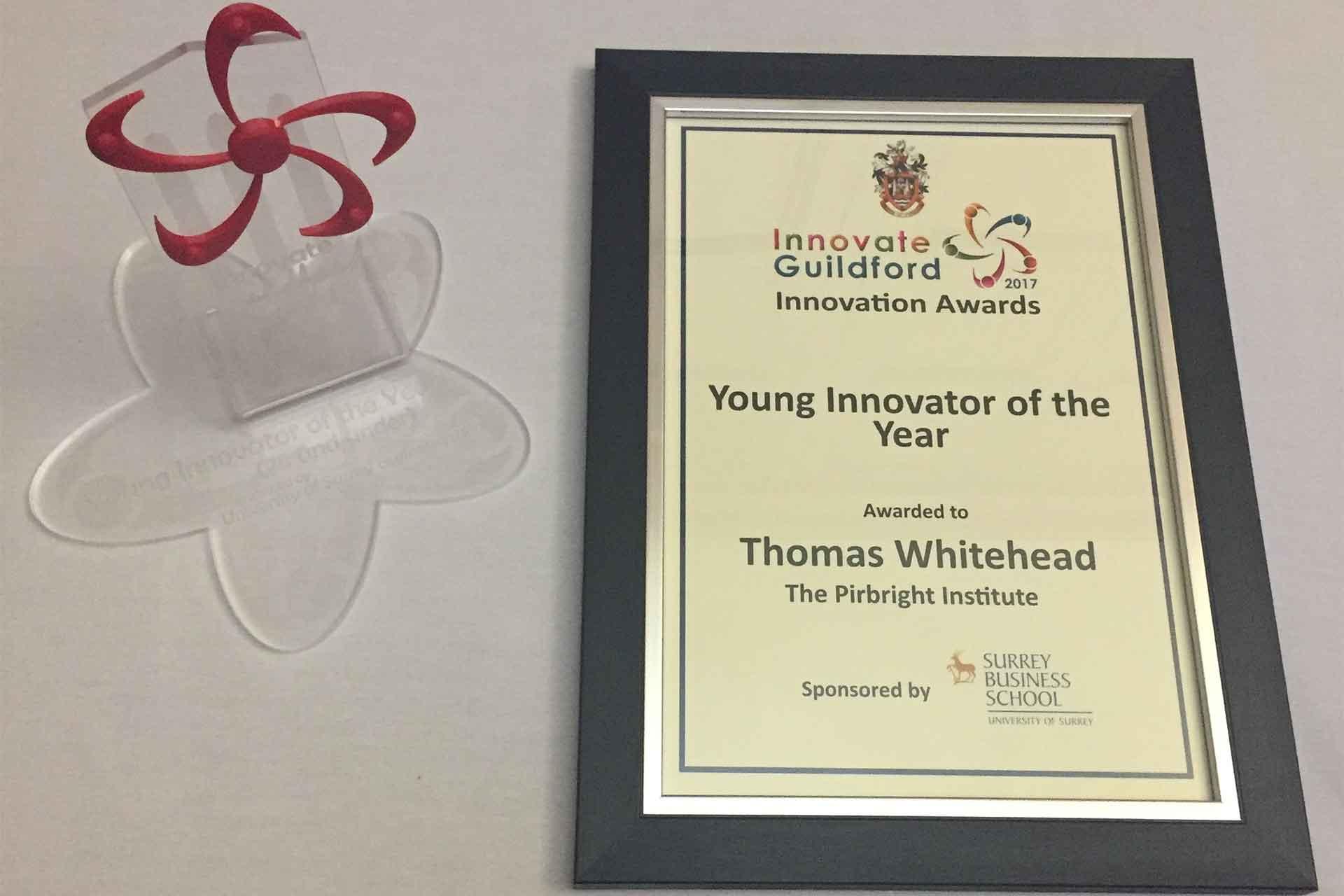A student studying for his PhD at The Pirbright Institute was named Young Innovator of the Year at the Guildford Innovation Awards 2017 on 22 February 2017. Tom Whitehead won the award for his research on egg anti-viral proteins which could lead to a major step forward in vaccine production rates.
For more than 30 years many vaccines, including that for seasonal influenza, have been grown using either embryonated hen’s eggs or chicken cell lines. The most significant restriction on vaccine production is the embryo’s natural immune response however, which works to prevent viruses from replicating in cells – a process which is fundamental to vaccine production in eggs.
Tom Whitehead, working closely with senior scientists at Pirbright, identified the family of antiviral proteins called chicken interferon-inducible transmembrane (or chIFITM) proteins, which generate the embryo’s anti-viral immune response. Previous studies in mammals have shown that IFITM proteins work to restrict a wide range of viruses, from flu to Ebola.
By performing similar experiments using avian influenza A virus, Tom demonstrated that restricting the activity of these proteins enables the levels of virus to increase, which suggests that chIFITMs do play a key role in controlling viral infections.
Restricting the activity of chIFITM proteins in eggs, means future vaccines for both animals and humans could be produced at much faster rates, with higher yields per egg. As fewer eggs would be needed to produce the same amount of vaccine, the efficiency savings will make vaccine development and production more cost effective and help increase production levels.
Tom Whitehead said: “Winning this award is a real honour and means a great deal to me - especially as a young scientist beginning my research career. I would like to thank The Guildford Innovation Awards and the leader of my research group, Dr Mark Fife, who nominated me – as well as my fellow researchers at Pirbright who supported this work.
“We are all very excited about this discovery, which at a time of increasing threat to lives and livelihoods globally from disease, has the potential to boost vaccine production rates and availability to both people and livestock. This award also highlights the innovative and world leading science being undertaken in our local area, which is helping solve some of the major issues facing the world today. Something we should all be very proud of”.
This Pirbright research has significant commercial potential and the Institute is currently in talks with major vaccine producers keen to adopt this internationally patented technology, to advance the field of both animal and human vaccine production. Production yields for pandemic and epidemic strains of vaccines made using the technology developed at Pirbright, are due to be evaluated in collaboration with industry partners.
